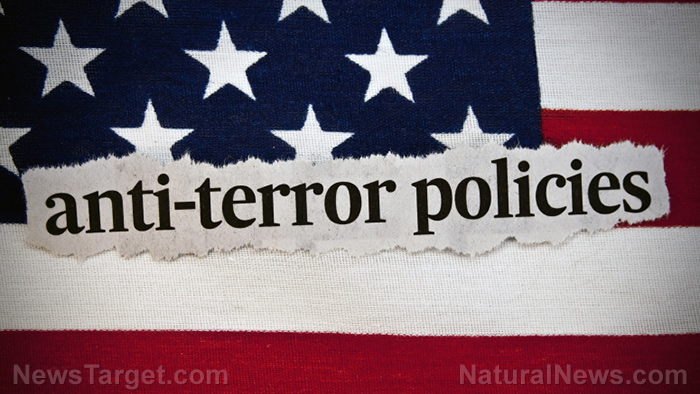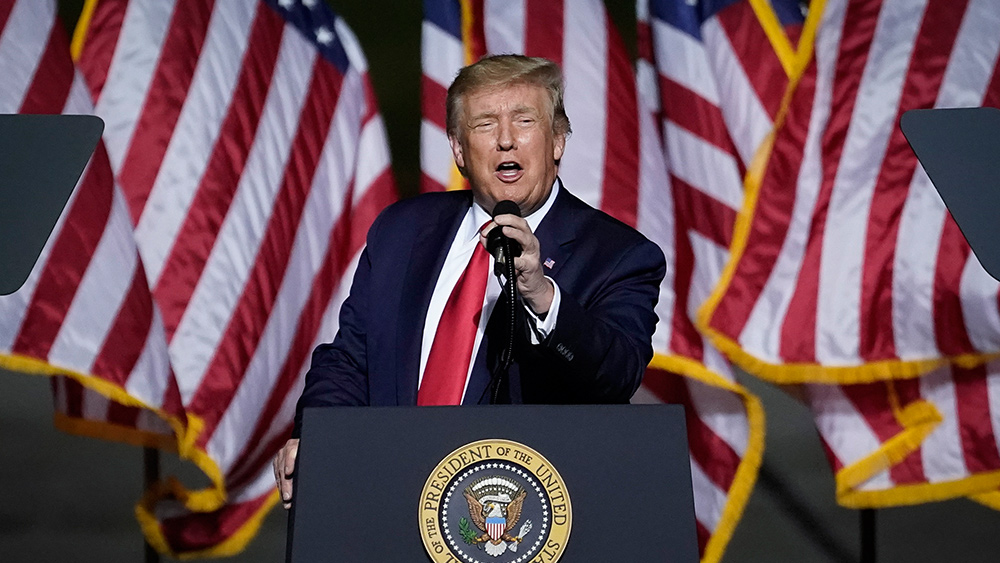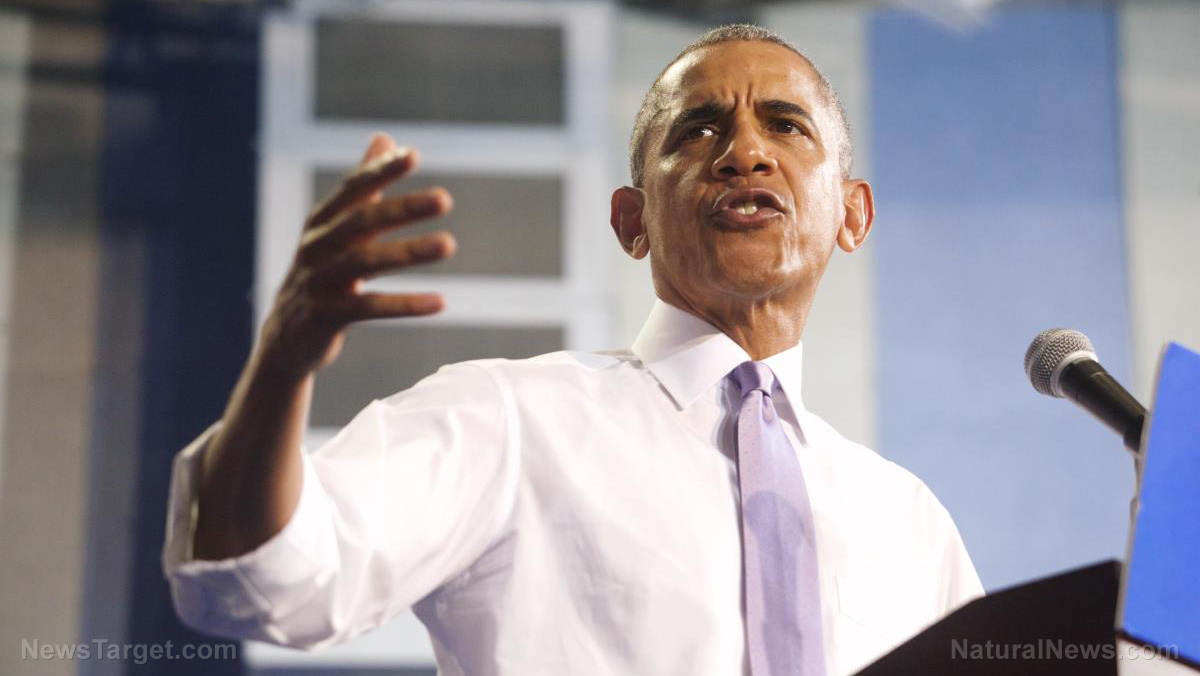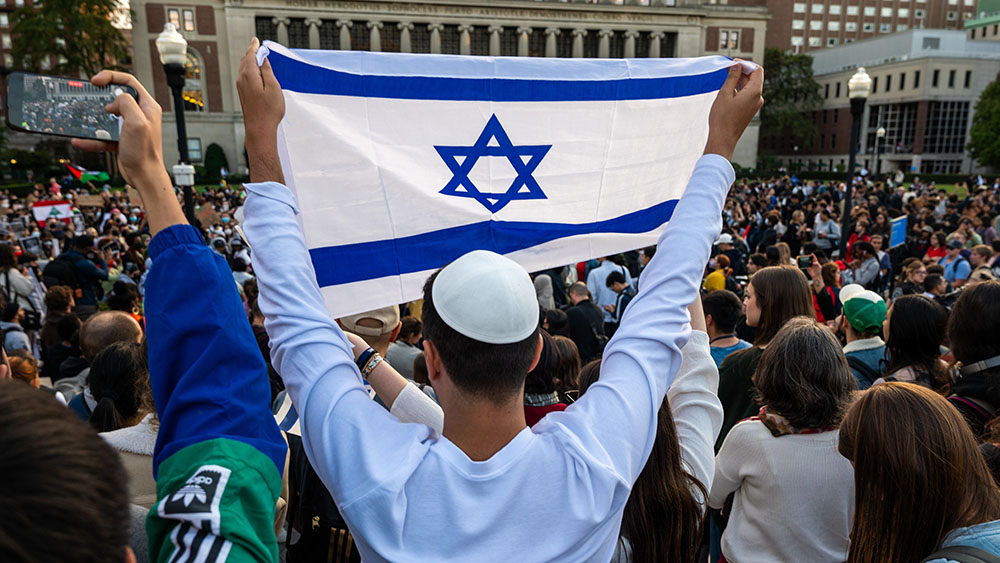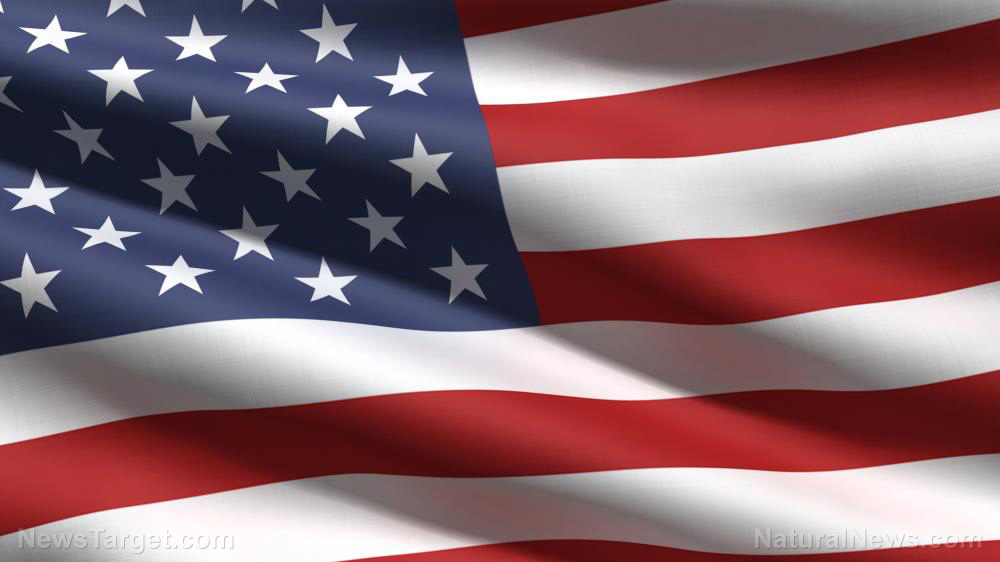Professors: Free speech and intellectual diversity are not essential to higher education
11/27/2023 / By News Editors

In “The Indispensable Right,” I discuss how academics are now leading an anti-free speech movement on campuses that challenges the centrality (or even the necessity) of free speech protections in higher education. The latest such argument appeared this month in the Chronicle of Higher Education.
(Article republished from JonathanTurley.org)
Two Arizona State University professors — Richard Amesbury and Catherine O’Donnell — wrote that free speech concerns yield too much to the “right wing” and that free speech should not be given the protection currently afforded by universities and colleges. Indeed, they argue that free speech may be harming higher education by fostering “unworthy” ideas.
Amesbury teaches religious studies and O’Donnell teaches history at ASU. They wrote an article titled “Dear Administrators: Enough with the Free Speech Rhetoric! It Concedes Too Much to the Right-Wing Agenda.”
The two academics challenge the long-held view of the centrality of free speech and intellectual diversity to higher education. Notably, many of us have been alarmed by the erosion of both values on our campuses, but Amesbury and O’Donnell seem to worry that there is still too much protection for opposing views. Worse yet, they suggest that the free speech objections are often part of a right-wing funded agenda.
In fairness, to the two professors, they do not reject the overall value of free speech and refer to free speech as among the important values to be balanced in the academic setting. While referring to free speech as “essential,” we clearly defer on what that means. They are less supportive of intellectual diversity.
The authors challenge “the assumptions that free speech is a cardinal virtue of higher education, and that colleges should aspire to a diversity of opinions.” They insist that higher education is about finding truth and that means that false ideas are inimical to our mission as educators. Indeed, they question the need for “intellectual diversity”:
Our contention is that calls for greater freedom of speech on campuses, however well-intentioned, risk undermining colleges’ central purpose, namely, the production of expert knowledge and understanding, in the sense of disciplinarily warranted opinion. Expertise requires freedom of speech, but it is the result of a process of winnowing and refinement that is premised on the understanding that not all opinions are equally valid. Efforts to “democratize” opinion are antithetical to the role colleges play in educating the public and informing democratic debate. We urge administrators toward caution before uncritically endorsing calls for intellectual diversity in place of academic expertise…
A diversity of opinion — “intellectual diversity” — isn’t itself the goal; rather, it is of value only insofar as it serves the goal of producing knowledge. On most unanswered questions, there is, at least initially, a range of plausible opinions, but answering questions requires the vetting of opinions. As some opinions are found wanting, the range of opinion deserving of continued consideration narrows.
As a threshold matter, what is so striking about this argument against intellectual diversity is that it is made at a time with little such diversity in most departments. Seeking a wider range of viewpoints on departments does not “concede too much to the right-wing agenda.” It acknowledges a growing problem across higher education, It is an educational agenda that has prompted many of us to raise the reduction of intellectual diversity.
We have already seen faculties purged of conservative and libertarian colleagues. We previously discussed how surveys at universities show a virtual purging of conservative and Republican faculty members. For example, last year, the Harvard Crimson noted that the university had virtually eliminated Republicans from most departments but that the lack of diversity was not a problem. Now, a new survey conducted by the Harvard Crimson shows that more than three-quarters of Harvard Arts and Sciences and School of Engineering and Applied Sciences faculty respondents identify as “liberal” or “very liberal.” Only 2.5% identified as “conservative,” and only 0.4% as “very conservative.”
Likewise, a study by Georgetown University’s Kevin Tobia and MIT’s Eric Martinez found that only nine percent of law school professors identify as conservative at the top 50 law schools. Notably, a 2017 study found 15 percent of faculties were conservative. Another study found that 33 out of 65 departments lacked a single conservative faculty member.
Compare that to a recent Gallup poll stating, “roughly equal proportions of U.S. adults identified as conservative (36%) and moderate (35%) in Gallup polling throughout 2022, while about a quarter identified as liberal (26%).”
Even with this purging of departments, Amesbury and O’Donnell still worry that intellectual diversity could be maintained as a goal in higher education. They are not alone in this view. As we have previously discussed, some professors reject the notion that campuses should protect the free speech rights of those who are . . . well . . . wrong.
For example, after many of us expressed disgust at the treatment of a federal judge shouted down by Stanford law students, Professor Jennifer Ruth wrote a column in the Chronicle of Higher Education heralding their actions. It is an extension of her book It’s Not Free Speech: Race, Democracy, and the Future of Academic Freedom (with Penn State Music Professor Michael Bérubé) declaring certain views as advancing “theories of white supremacy” and thus having “no intellectual legitimacy whatsoever.” Once declared as harmful, it is no longer free speech and therefore worthy of censorship or cancellation. It is that easy.
These academics reject the long-held view that higher education rests on the preservation of intellectual diversity, as discussed in the famous Kalven Report.
In 1967, the University of Chicago assembled a committee to study academic freedom and free speech that would become one of the most important projects in modern higher education. It became known as the “Kalven Committee” after its chair, the great law scholar Harry Kalven, Jr. The report contained an eloquent and profound defense of diversity of thought and expression that seems utterly abandoned by many today. It was cited by the Stanford Law Dean in her letter to the law students and stated in part:
“From time to time instances will arise in which the society, or segments of it, threaten the very mission of the university and its values of free inquiry. In such a crisis, it becomes the obligation of the university as an institution to oppose such measures and actively to defend its interests and its values.”
Amesbury and O’Donnell reject the precept that departments should foster intellectual diversity since “accepting this role for the humanities and social sciences, however, means that their faculties risk losing the ability to judge any ideas (or proposed curricula or public programming) unworthy of sponsorship.”
It is a rationalization for the current echo chamber of higher education. Of course, many of these academics would be outraged if conservatives were to take hold of faculties and start to exclude their views as “unworthy.” Indeed, that was once the response to far left professors like critical legal scholars and socialists. Now, however, the left has control of these departments and has declared opposing views to be unworthy of protection.
One can certainly understand the appeal of this argument to many faculty and publications like the Journal of Higher Education. By simply declaring opposing views “unworthy” or wrong, you relieve yourself of any obligation to allow such opposing views on faculties or in publications.
We saw the impact of this orthodoxy during the pandemic.
For example, the media, academic departments, and government agencies allied to treat anyone raising a lab theory as one of three possibilities: conspiracy theorist or racists or racist conspiracy theorists. Academics joined this chorus in marginalizing anyone raising the theory. One study cited the theory as an example of “anti-Chinese racism” and “toxic white masculinity.”
As late as May 2021, the New York Times’ Science and Health reporter Apoorva Mandavilli was calling any mention of the lab theory as “racist.” Conversely, one former New York Times science editor Nicholas Wade chastised his former colleagues for ignoring the obvious evidence supporting a lab theory as well as Chinese efforts to arrest scientists and destroy evidence that could establish the origin.
Others in academia quickly joined the bandwagon to assure the public that there is no scientific basis for their theory, leaving only racism or politics as the motivation behind the theory. In early 2020, with little available evidence, two op-eds in The Lancet in February and Nature Medicine went all-in on the denial front.
The Lancet op-ed stated, “We stand together to strongly condemn conspiracy theories suggesting that Covid-19 does not have a natural origin.”
No reference to the lab theory was to be tolerated. When Sen. Tom Cotton (R., Ark.) merely mentioned the possibility in 2020, he was set upon by the usual flash media mob. The Washington Post ridiculed him for repeating a “debunked” coronavirus “conspiracy theory.”
In September 2020, Dr. Li-Meng Yan, a virologist and former postdoctoral fellow at the University of Hong Kong, dared to repeat the theory on Fox News, saying, “I can present solid scientific evidence . . . [that] it is a man-made virus created in the lab.” The left-leaning PolitiFact slammed her and gave her a “pants on fire rating.”
Academics were stripped of their positions on leading boards and suspended from social media, including professors who co-authored the Great Barrington Declaration. The Declaration advocated for a more focused Covid response that targeted the most vulnerable population rather than widespread lockdowns and mandates. Many are now recognizing the basis for those views and questioning the efficacy and cost of the massive lockdowns as well as the efficacy of masks or the rejection of natural immunities as an alternative to vaccination. Federal agencies now accept the lab origin theory. Yet, these experts and others were attacked for such views just a couple years ago and their views were deemed “unworthy” by many for schools or publications.
The problem with rejecting or devaluing intellectual diversity in higher education is that it fosters orthodoxy and ignorance. Rejecting opposing views certainly can advance careers. There are more opportunities for the compliant or the orthodox. Professors face less challenge or contradiction in their own writings. Promotions, speaking engagements, and publishing opportunities are certainly enhanced with the elimination of colleagues with opposing views.
However, the result is the gradual death of higher education. It is evident in the rising intolerance shown on our campuses for opposing views and increasing demands for censorship and blacklisting. It is the triumph of the majority, but it looks more like an academic mob. Once all of the “unworthy” thoughts and faculty are purged, what is left appears more like indoctrination than education.
Update:
Professor O’Donnell has responded to this column and I appreciate her willingness engage us on the blog. I would that all of our readers will show the same civility and respect as does Professor O’Donnell. I also wanted to share a response to her arguments.
Here is her comment:
“I appreciate your attention to the piece Richard and I recently wrote. Our argument is not that free speech is unimportant. Nor do we argue against a diversity of ideas. And we certainly never suggest that ideas should go unquestioned: to the contrary, we make the same point that you do, which is that ideas must face scrutiny, competition, and skepticism if knowledge is to advance. Our argument is two-fold. First, that universities should have a more modest sense of their role in society. Free speech is important, we argue, for a vibrant public sphere. The distinguishing value of higher education, however, is academic freedom – the freedom to participate without hindrance in the disciplinary processes by means of which knowledge can be sifted from mere opinion.
This means that rather than seeking to be an all-encompassing speech forum, universities should instead embrace their limited role as places of scholarship, learning, and teaching, with the pursuit of truth at their core. Second, we argue that “free speech” and “intellectual diversity” – exactly because one is so easily chastised for questioning them – have become gates through which unexamined orthodoxies, buoyed by government or donor influence, enter universities and take root. Imperfect as academia is, we’ve found that our critics come up with examples of how, when disciplinary processes are pursued, knowledge does advance. You observed that legal theories that were once absent from academia entered the mainstream; new legal theories will emerge to displace those now at center stage if disciplines undertake their role of questioning and vetting. That displacement can’t happen if their adherents can simply appeal to “intellectual diversity” for their protection. Another critic pointed out that eugenics was once important to some university departments. Precisely, we say. Scholarship informed by the tragic moral understanding that followed WWII, eventually displaced eugenic pseudoscience. Eugenics could now be reinserted into universities under the banner of free speech or intellectual diversity. We can all surely agree that this is not desirable. And if we agree to that, perhaps we can move past the assertion that the mere invocation of free speech and intellectual diversity must always capture the moral and intellectual high ground.”
I must confess that I remain skeptical. Professor O’Donnell explains that “[t]his means that rather than seeking to be an all-encompassing speech forum, universities should instead embrace their limited role as places of scholarship, learning, and teaching, with the pursuit of truth at their core.”
This is a common defense against academic diversity. No one is seriously questioning the role of universities as places of scholarship or learning. The issue is the dramatic reduction of conservative, libertarian, or even dissenting faculty at many schools. While raising such concerns can be dismissed as “a right-wing agenda,” there are a host of polls and surveys showing students and faculty are reporting a lack of tolerance or diversity of thought in classrooms. When these concerns are raised, the mantra is that we have not hired conservative or libertarian scholars because their views lack merit or intellectual vigor.
For example, Above the Law Senior Editor Joe Patrice defended “predominantly liberal faculties” and argued that hiring a conservative professor is akin to allowing a believer in geocentrism to teach.
Professor O’Donnell also notes that “we argue that ‘free speech’ and ‘intellectual diversity’ … have become gates through which unexamined orthodoxies, buoyed by government or donor influence, enter universities and take root.” The dominance of the left found in these surveys is not due to “unexamined orthodoxies.” It is due to the dismissal of opposing views as “unworthy” and not “intellectually rigorous.” That rationale has been used to purge faculties of most conservatives. Most faculties run from the left to the far left. There is no explanation other than to claim that no sufficiently qualified conservative, libertarian, or dissenting candidates applied. Years go by for many schools without a single qualified candidate with conservative or dissenting views on major issues. In the meantime, states are expected to continue to fund schools that often exclude the values and views of the majority of the taxpayers.
The disconnect defies logic. For example, half of the judges and roughly half of the populace hold fairly conservative views on constitutional issues. Half of Congress hold such views. However, only a small percentage of conservative faculty (if any) can be found at most law schools. That is not due to these views being “unexamined.” Likewise, it is relatively rare to have opposing views on gender identity, climate control, abortion, social justice issues found on many campuses. Indeed, faculty with such views have been subject to cancel campaigns and university investigations.
Professor O’Donnell adds that “You observed that legal theories that were once absent from academia entered the mainstream; new legal theories will emerge to displace those now at center stage if disciplines undertake their role of questioning and vetting.” However, this blog is full of accounts of dissenting faculty being removed from publications, societies, and faculties. The political orthodoxy that has taken hold of our campuses has made it far less likely that such views can be fairly presented.
None of this is, as claimed, is offered to use of free speech or intellectual diversity to push a “right-wing agenda.” These are questions that have long been raised and remain, even after this column, unanswered.
Second update:
I was distressed to hear from the authors that they have been subject to hateful messages. While other sites also covered this story, I hope that our discussion has not fueled such disgraceful conduct. This is a free speech forum that values a diversity of opinions, including those of these authors who are thoughtful academics. I have been the subject of threats against myself and my family for years. I would not want to contribute to such attacks against others. This column is discussing a fundamental debate on the essential elements to higher education. It is a worthy debate to have in a civil and respectful manner. For those who use this as a license to vent their rage, this is not the blog for you.
Read more at: JonathanTurley.org
Submit a correction >>
Tagged Under:
absurd, biased, campus insanity, Censorship, conservatives, culture wars, education system, First Amendment, free speech, freedom, higher education, identity politics, intellectual diversity, left cult, Liberal Mob, liberatrian, Liberty, Libtards, lunatics, propaganda, public education, Richard Amesbury, social justice, speech police, Suppressed, thought police, universities
This article may contain statements that reflect the opinion of the author
RECENT NEWS & ARTICLES
COPYRIGHT © 2017 FASCISM NEWS




